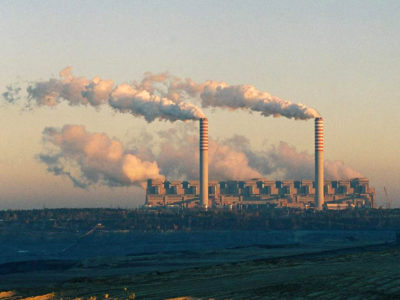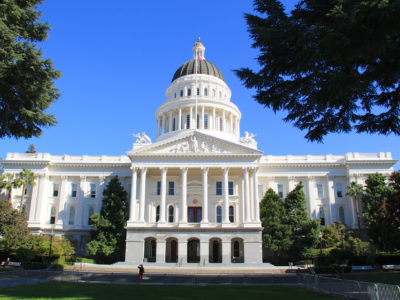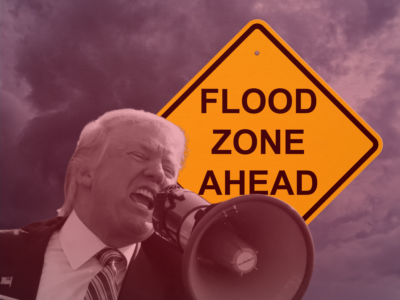Clean Air Act
The CRA and the filibuster
Expanding the scope of the CRA might also result in weakening the filibuster
This is the third in a series of blog posts examining the possible application of the Congressional Review Act (CRA) to California’s waivers under the Clean Air Act allowing the state to issue its own emissions standards for motor vehicles. The first post is here. The second post is here. Another possible implication of applying …
Continue reading “The CRA and the filibuster”
CONTINUE READINGThe CRA and permits
Applying the CRA to the California waivers might open the door to Congressional review of permits more broadly
This is the second in a series of blog posts examining the possible application of the Congressional Review Act (CRA) to California’s waivers under the Clean Air Act allowing the state to issue its own emissions standards for motor vehicles. The first post is here. The basic legal question at the heart of the dispute …
Continue reading “The CRA and permits”
CONTINUE READINGWhat is the scope of the Congressional Review Act?
Possible implications of expanding the CRA to the California waivers, and beyond
The Congressional Review Act (CRA) provides a tool for majorities in the House and Senate, along with the President, to overturn a recently promulgated agency regulation, and to legislatively prohibit promulgation of a “substantially the same” regulation in the future. By its nature – since it requires Presidential approval of the relevant joint Congressional resolution …
Continue reading “What is the scope of the Congressional Review Act?”
CONTINUE READINGDissecting the Attacks on the Endangerment Finding
EPA has identified four different arguments against the endangerment finding. None have merit.
In late 2009, EPA made a formal finding — often called the Endangerment Finding —that greenhouse gases may endanger human health and welfare. Undaunted by the overwhelming scientific evidence in favor of that finding, the Trump EPA plans to reconsider that finding. Few independent observers believe EPA will succeed, but the issue is important enough to warrant a close look. Here’s a deep dive.
CONTINUE READINGLegal Safeguards Against Deregulation
Congress was aware that there could be a backlash against environmental standards. It took precautions.
If it could, no doubt the current Administration would be happy to have the same polluted air and water–and energy-wasting appliances)– that we had fifty years ago. Thanks to the anti-backsliding aspects of environmental law, however, they can’t really achieve that. The best they can generally do is to get rid of recent regulations that haven’t gone into effect yet.
CONTINUE READINGThe Legal Complexities of Deregulating Power Plant Carbon Emissions
The Supreme Court struck down Obama’s powerplant regulation. but it didn’t endorse Trump’s first try either.
We are likely to end up with a Trump rule for powerplant emissions that is much weaker than the Biden rule, but not as weak as EPA’s effort in the first Trump Administration. And the process will take Trump longer this time, with a greater litigation risk.This matters because even a very weak rule may require significant investments in improving powerplant efficiency, which could result in some plant closures.
CONTINUE READINGThe Top-Ten Lower Court Decisions on Environmental Law
Don’t let the headlines deceive you. It’s not just the Supreme Court that shapes environmental law.
The Supreme Court tends to get all the attention, but for every Supreme Court opinion on environmental law there are probably fifty opinions in the lower federal courts. Collectively, the lower courts have done fat least as much to shape the law than the Supreme Court’s occasional interventions.
CONTINUE READINGCongress Lacks Authority to Review California’s Car Waiver
It’s a complicated issue but the answer is clear: the Congressional Review Act does not apply.
States get many kinds of waivers from the federal government. For example, many states (including quite a few Red states) have received waivers from some Medicaid requirements. Overturning the EPA vehicle waiver would expose all state waivers to the risk of being overturned under the Congressional Review Act, contrary to the plain language of that statute.
CONTINUE READINGTrump’s Seven Most Anti-Environmental Moves — and How to Push Back
There were dozens of actions, all harmful to the environment. These are the worst of the worst.
In the month since he reentered the White House, Trump has dedicated himself to knee-capping environmental protection through a series of executive orders. These orders aim to eliminate crucial environmental regulations, eviscerate key agencies like EPA, arbitrarily halt government funding, and eliminate environmental restraints on the private sector. But these are not done deals, and there are ways of pushing back.
CONTINUE READINGWhat Happens If EPA Revokes the Endangerment Finding?
The action would mean full-blown warfare against all things climate.
We are likely to learn next week if the Trump Administration will eviscerate the most important climate regulations the Biden Administration issued over the last four years. Under Trump’s “Unleashing American Energy” Executive Order, EPA Administrator Lee Zeldin is supposed to recommend by February 19 whether to reverse the central basis for much of the …
Continue reading “What Happens If EPA Revokes the Endangerment Finding?”
CONTINUE READING








